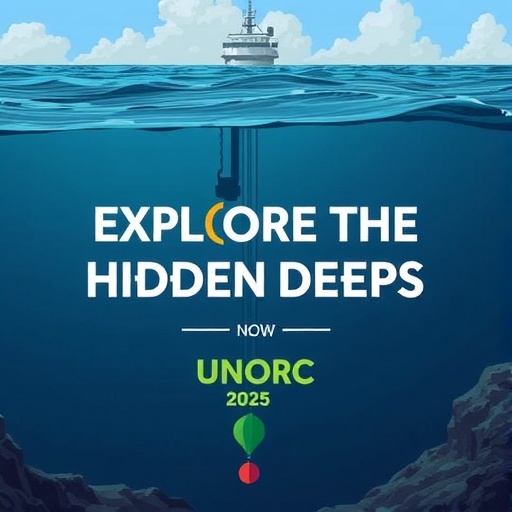A New Era for Scientific Ocean Drilling: Exploring Earth’s Deep Secrets Through International Collaboration
Scientific ocean drilling has long stood as a cornerstone in understanding Earth’s complex systems, offering unparalleled insights into climate dynamics, geological hazards, the deep biosphere, tectonic mechanisms, and sustainable resource management. In an unprecedented gathering organized by the European Consortium for Ocean Research Drilling (ECORD) and supported by the nascent International Ocean Drilling Programme (IODP3), leading scientists, policymakers, and stakeholders worldwide will converge in a hybrid event designed to forge new pathways in oceanographic research and international cooperation.
The event, slated for June 3, 2025, at the esteemed Institut de la Mer de Villefranche in Villefranche-sur-Mer, France, represents far more than a conventional scientific meeting. It embodies a milestone signifying the evolution of global marine research governance, particularly with the establishment of IODP3. This new chapter integrates efforts from ECORD, the Japan Agency for Marine-Earth Science and Technology (JAMSTEC), and the Australian & New Zealand International Scientific Drilling Consortium (ANZIC) as an associate member, marking a broadened and more inclusive international framework that underscores the critical importance of marine geosciences in the 21st century.
Scientifically, ocean drilling has revolutionized our comprehension of Earth’s sediments and sub-seafloor environments. These drilling expeditions retrieve invaluable core samples from oceanic crust, sediment layers, and underlying strata, unlocking archives that span millions of years. The insights gathered shed light on paleoclimate patterns and evolution, tectonic plate interactions, and the elusive microbial life thriving in extreme subseafloor habitats. This forum will consequently highlight the myriad ways in which scientific ocean drilling contributes to answering urgent global questions related to climate change vulnerabilities, natural disaster precursors, and the sustainable exploitation of oceanic mineral and biological resources.
According to Angelo Camerlenghi, chair of ECORD’s Science Support and Advisory Committee (ESSAC) and a prominent ocean researcher at the OGS in Trieste, science achieved through ocean drilling transcends mere academic inquiry. He emphasizes that such research forms the bedrock upon which informed global environmental policies and multilateral scientific initiatives are constructed. “Scientific ocean drilling provides the fundamental tools for understanding Earth’s systems,” Camerlenghi asserts, underscoring its indispensable role in shaping policy responses to accelerate progress in mitigating climate and ecological crises.
The forthcoming organizational transition will herald the launch of IODP3, a globally coordinated program that aims to maximize scientific returns by optimizing resource allocation and fostering stronger international partnerships. Gilbert Camoin, Director of ECORD Managing Agency and a researcher at CEREGE in Aix-en-Provence, highlights that the integration of European, Japanese, Australian, and New Zealand scientific drilling capabilities consolidates a unified operational platform with broader scientific reach and technical prowess. Simultaneously, national programs led by the United States and the People’s Republic of China plan to commence operations by 2026, reflecting a diversified yet interconnected global matrix of ocean drilling initiatives.
This event is endorsed by the UNESCO Ocean Decade, reflecting its alignment with the agenda of fostering ocean sustainability and innovative marine science to address societal challenges. Attendees will benefit from keynote addresses by international scientific leaders and government representatives, each articulating their strategic vision for ocean exploration and resource stewardship. The discussions will encompass advancements in drilling technology, data integration techniques, and novel analytical methods, all crucial for elucidating subseafloor processes at unprecedented resolutions.
One key expected output from the gathering is the presentation of a Declaration of Commitment to Scientific Ocean Drilling. This formal statement aims to galvanize enduring financial and political support for oceanographic expeditions, ensuring uninterrupted access to the essential platforms and technology required for deep-sea exploration. The declaration is also anticipated to strengthen international cooperation frameworks, promoting open data sharing and cross-disciplinary collaboration amongst earth scientists, biologists, and climate researchers globally.
Ocean drilling programs employ cutting-edge technology involving state-of-the-art drilling vessels equipped with dynamic positioning systems, advanced coring capabilities, and real-time geophysical monitoring. These platforms penetrate kilometers beneath the seafloor to extract sediment cores that are systematically analyzed using lithostratigraphy, geochemistry, paleontology, and microbiology. The resultant data sets form the basis for modelling Earth’s climatic history, mineral resource distribution, and subduction zone activity, critical components for understanding potential geohazards such as earthquakes and tsunamis.
The International Ocean Drilling Programme, historically supported by 16 nations, has operated through collaborative agreements involving two primary platform providers. These providers contribute specialized vessels and sophisticated instrumentation, enabling the execution of complex expeditions under extreme marine conditions. The advent of IODP3 signifies a strategic consolidation, enhancing operational efficiency and scientific output by harmonizing logistics and funding across the expanding international consortium.
Beyond its scientific achievements, ocean drilling contributes significantly to societal resilience and economic interests. Data from drilling expeditions inform coastal planning, risk assessment, and disaster preparedness by elucidating sediment dynamics and fault mechanics beneath the ocean floor. Additionally, exploration for marine mineral resources such as polymetallic nodules and gas hydrates is pivotal for future energy solutions and technological materials, underscoring the importance of sustainable practices guided by sound geological understanding.
In sum, the upcoming hybrid event represents a seminal moment in the trajectory of scientific ocean drilling. By integrating expertise from Europe, Asia-Pacific, North America, and beyond, IODP3 is poised to unlock deeper scientific insights while reaffirming the ocean’s centrality to Earth’s systems and human well-being. It calls upon the global community to recommit to investing in marine research infrastructures and fostering international partnerships that will propel ocean sciences to new frontiers, underpinning transformative discoveries and informed policy decisions for decades to come.
Subject of Research: Scientific ocean drilling and its role in Earth system sciences, climate change research, geohazards, deep biosphere studies, tectonics, and sustainable resource management.
Article Title: A New Era for Scientific Ocean Drilling: Exploring Earth’s Deep Secrets Through International Collaboration
News Publication Date: June 3, 2025
Web References: European Consortium for Ocean Research Drilling (ECORD) official website; International Ocean Drilling Programme (IODP3) portals
Keywords: Scientific ocean drilling, International Ocean Drilling Programme, ECORD, IODP3, climate change, geohazards, deep biosphere, tectonics, sustainable resources, marine policy, subseafloor environments, ocean exploration




